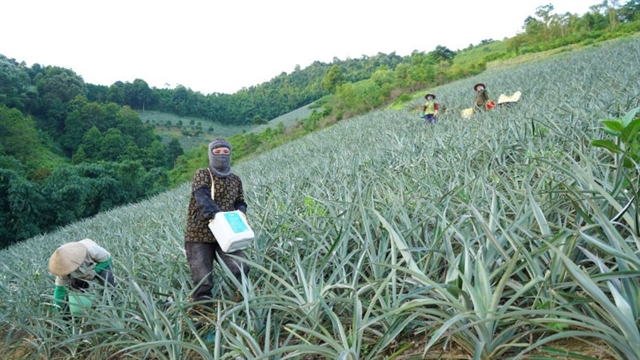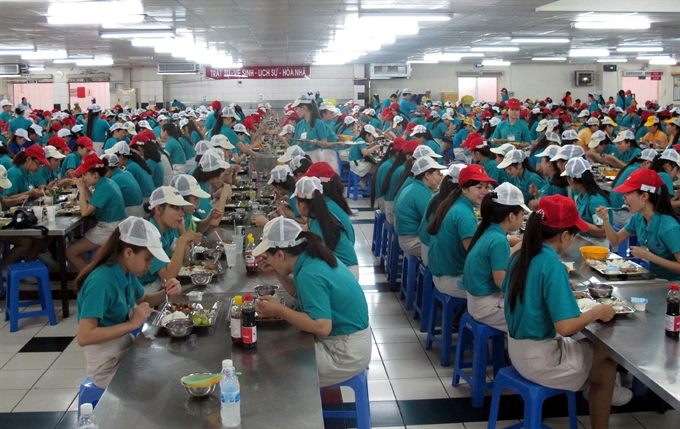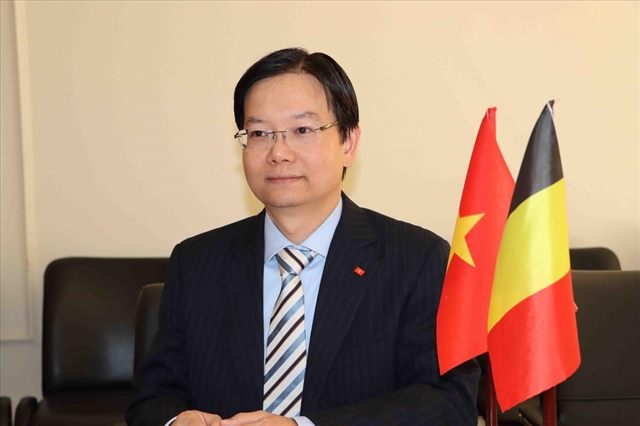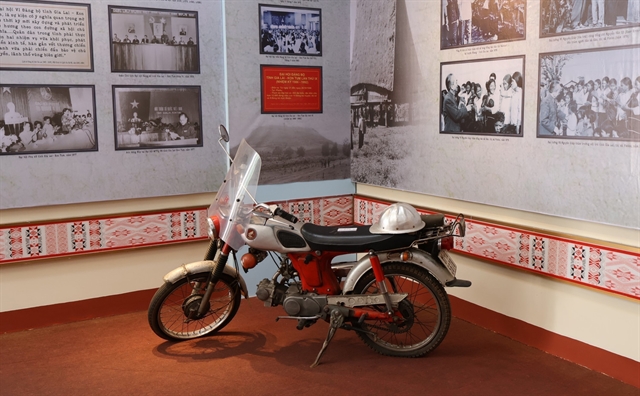 Society
Society

Prime Minister Nguyễn Xuân Phúc has underlined the need to identify the responsibilities of agencies concerned with food safety management, especially the role played by their chiefs.
 |
| Workers have lunch at a business canteen in the Tân Thuận Processing and Export Zone in HCM City. PM Nguyễn Xuân Phúc has called on stricter measures to ensure food safety for people. — VNA/VNS Photo Phương Vy |
HÀ NỘI – Prime Minister Nguyễn Xuân Phúc has underlined the need to identify the responsibilities of agencies concerned with food safety management, especially the role played by their chiefs.
PM Phúc made the request at a teleconference yesterday with the leaders of all 63 localities along with other cabinet members in an effort to enact measures and mechanisms to tackle the food safety issue.
Food safety fears are higher than ever as reports circulate of chemical contamination and smuggled food of unknown origins entering markets across the country.
The government, especially local authorities, has been blamed for not effectively handling violations. The lenient punishment for smugglers and producers of substandard goods has also failed to act as a deterrent.
“Ensuring food hygiene is the responsibility of the Party and State, firstly, of all-level authorities,” the PM said.
It is necessary to clarify management responsibilities, particularly individual responsibilities, in handling food safety violations, he stressed.
He said the chairpersons of People’s Committees at communal, district and provincial/municipal levels are responsible for taking action when there are food safety violations in areas under their management. The market management force and police are also responsible, he said.
PM Phúc admitted that relevant agencies have yet to perform well in ensuring food safety, which, he said, has had a direct impact not only on human health, but also the country’s position and prestige. It requires stronger, more resolute and comprehensive measures to improve efficiency in dealing with this issue, he said.
HCM City’s Party Committee Secretary Đinh La Thăng said one key reason behind the food safety issue is the failure to delineate individual responsibilities.
Authorities of communes and districts have acknowledged the existence of illegal slaughtering houses and substandard food producers in their areas, but no individuals were blamed nor disciplined, Thăng said.
“It is a must to clarify the responsibilities of related agencies and individuals for food safety violations,” he said.
He suggested efforts to ensure funding for food safety-related work, covering an array of steps like food inspection, equipment supply, personnel training and communications.
PM Phúc also asked for the highest administrative punishment, including the application of criminal law, for food safety violators.
In addition to State managers, producers and business people must also receive the strictest treatment, he said.
He called for heightened inspections and supervision, as well as further information dissemination to raise awareness of food safety among organisations, businesses and individuals.
Ensuring food safety is also the responsibility of the entire population, which should be aware of this issue to bring violations to light, the PM said, asking households and companies to publicise their production processes.
Chairman of the Hà Nội People’s Committee Nguyễn Đức Chung proposed regulations requiring product origins to be posted to make it easier for public supervision.
Thăng pointed to poor State management and loose inspection by competent agencies.
The official suggested establishing a specialised apparatus in charge of food safety in cities and provinces.
Minister of Agriculture and Rural Development Cao Đức Phát stressed the need to clarify the tasks of ministries, agencies and localities regarding food safety and proposed setting up connection models between producers, farmers and businesses to facilitate inspections.
He also pointed to the urgent need to stop the smuggling of pesticide and banned substances in order to prevent the abuse of them in farming, husbandry and aquaculture. He noted that his ministry is drafting amendments to other decrees, which will soon be submitted to the Government for approval, to increase the punishment of such violations.
Participants said there remained shortcomings and limitations in ensuring food safety, particularly in the implementation of regulations and measures to deal with the issue.
Some localities still pay less attention to food safety management, and thus are slow to detect and handle violations. Furthermore, personnel to handle this issue within localities remain limited, leading to difficulties in inspection and management tasks.
Major issues relating to food safety at present are the abuse of the banned substance salbutamol to stimulate growth in pigs and make them lean, the excessive use of antibiotics in animal breeding and the widespread use of fake beverages and dietary supplements. These issues must be tackled first, according to Deputy Prime Minister Vũ Đức Đam. — VNS




